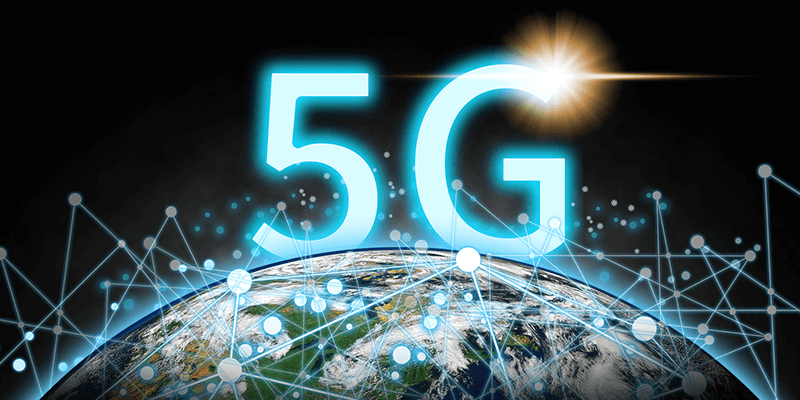
Published on: January 31, 2020
How 5G May Change the Future of Work
Finally. After all the talk and all the hype, 5G is in the U.S. And, it’s expanding. Of course, not everyone can take advantage of 5G. Yet. You need the right equipment. And you have to live in a city that offers 5G connections.
With the spread of 5G comes the talk of how it could revolutionize work. Given that 5G is, in many ways, a major upgrade to current cellular connections, it’s entirely possible that work will never be the same after 5G. But 5G may not change the way the world does business. In fact, it may have no impact at all.
What Is 5G?
When we talk about 5G, all we’re really talking about is a generation. At its simplest, 5G is the fifth generation of cellular technology. Without getting too much into it, 1G was the original cellular technology. Most cellular technology these days is 4G or fourth generation. You might know it as LTE.
Next up is 5G, the next generation of cellular connections. The most important things 5G will do are:
- Allow bigger channels (meaning your data can move faster)
- Have lower latency (a more responsive connection)
- Connect more devices at the same time (this could lead to more smart homes. Or, just more people streaming their favorite shows on different devices at the same time).
While there are many nuances to 5G (low, medium, and high bands, for example), the biggest impact 5G will have on cellular connections is speed. Because 5G has wider channels, more people will be able to use that channel without slowing down the connection. Think of it this way: the more narrow the channel, the more clogged up it gets — kind of like the roads at rush hour. A wider road means it’s less likely to clog up — and slow down — when more people use it.
But the improved latency on 5G may be just as important as speed. Fast Internet doesn’t matter if you click a link and nothing happens. Lower latency means that when you click something, it happens faster. And the faster things happen, the more you can accomplish (without tearing your hair out!).
How 5G Could Change the Way We Work
The wider channels and decreased latency of 5G connections could change the way companies do business. But a faster connection won’t only mean companies get more done. Using 5G could change where companies — and employees — work.
“The Office” May Become a Thing of the Past
Sure, remote work is on the rise and is an increasingly sought-after benefit. However, 5G may make “the office” obsolete.
As 5G networks spread across the U.S. and around the world, a slow and unreliable Internet connection could become a distant memory. The ability for more employees to connect and get their jobs done quickly and reliably may result in even more employers embracing remote work.
Business Travel May Disappear
Because 5G is faster and more responsive, virtual reality (VR) may become more mainstream. While that’s great for gamers, VR could have a significant impact on how companies conduct their business.
Employees may no longer need to go on long and expensive business trips to tour facilities, inspect factories, or even have a face-to-face meeting. Having a strong, consistent Internet connection means companies could see every part of a factory floor that’s across the ocean without ever having to step foot in it.
And, without laggy, buggy connections, it will be easier for companies to conduct virtual meetings with staff and clients. No longer will there be an uncomfortable silence that turns out to be a spotty connection with something buffering, buffering, buffering. Virtual meetings will go as smoothly as in-person ones.
It May Change the Game for Rural Residents
While remote work can help rural workers find jobs that they may not otherwise have access to, that job depends on a strong and reliable Internet connection — something that many rural workers can’t always find.
However, 5G connectivity may finally be the answer for rural job seekers. With faster and more reliable connections, people in rural settings may have more luck finding and keeping jobs in industries like social media, computer programming, or even AI. Even for those who aren’t looking for work, 5G may change the way they seek healthcare, making it possible for them to get much-needed care without having to drive a whole day just to see a doctor.
5G May Not Change Anything
While 5G is the next step in cellular connections, that doesn’t mean it’s going to revolutionize the work world — or even your home Internet connection. There are some drawbacks to the 5G revolution that businesses need to think about before adopting it.
It’s Not That Secure
The problem with any cellular connection is it’s not as secure as wired Internet connections. Yes, a cellular connection is more secure than a Wi-Fi connection. However, a properly deployed Wi-Fi connection in an office setting (which feeds off the wired connection) can still be more secure than cellular.
Sure, anyone can click on a malicious link and cause chaos on the office server. But the reality is that the best way to protect your data (as of now) is to use a wired connection. Until cellular connections are as secure — or more secure than — wired connections, companies may not be willing to take the risk.
Wired Is More Stable
While everyone has experienced an Internet outage once in a while, the fact is it’s less likely to happen when you’re on a wired connection. It doesn’t matter how fast the connection is if you can’t connect to it!
Cellular connections are more prone to interference. And that doesn’t just mean dropped calls or a bad connection. It also means they cause interference, too. Other phones (especially wireless ones), a bad connection to the tower, even radios and television can create interference. And sometimes, that static sound you hear from a microphone or speaker? That’s caused by the cellular signal.
While there have been many improvements in cellular technology and connections over the years, the fact remains that interference is a real problem. And for some companies, that interference may interfere with their business, making them hesitant to switch to 5G.
It Has to Be Everywhere
The problem with 5G connections is that they only travel short distances. They need more antennas that are close together to create and keep the connection. While that’s possible in an urban area, it’s not so easy to do in a rural area.
There aren’t as many places to mount the antennas. And existing infrastructure may not be close enough to create the required density to maintain a 5G signal. That means that cellular providers need to invest in and build 5G infrastructure in rural areas.
However, the reality is that the current Internet infrastructure in rural areas is lacking. Based on current infrastructure investments, there’s the possibility that 5G may get to rural areas long after it’s standard in urban areas — if it even gets there at all.
The Future of Cellular
While 5G may be the next big thing in cellular technology, it doesn’t mean the world will change overnight. It’s going to take time and investment to develop 5G networks across the country. That will happen. But it may be a long process that means 5G isn’t coming to your area anytime soon.
And, even if you have 5G access, that doesn’t mean it’s the right choice for your company. Using 5G to stream movies on a personal device may happen. But in terms of using it for work, 5G as a “standard” may still be a long way off.
Learning More About Remote Work
We frequently publish content about the workforce, career advice, and workplace news. Check out more articles on our blog to learn more!
CHECK OUT THE REMOTE.CO BLOG >
Photo Credit: bigstockphoto.com
By Jessica Howington | Categories: Work Remotely



